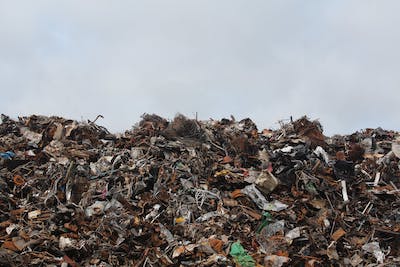A study by Material Focus says that people in the UK threw away many small electric things last year. These things like cables, lights, mini fans, and throw-away vapes are the most growing type of e-waste. Most homes have 30 unused electric things just sitting around. These things have good stuff like copper wires and batteries that we can use again. Material Focus is asking people to recycle these things instead of throwing them away.
The study also says that people are throwing away less electric waste than before. This is because electric things are lighter now and more people are recycling. But, many people still have unused electric things at home that could be used better. Nadiya Catel-Arutyunova, a helper at the British Retail Consortium, says that all shops that sell electric things should help customers throw away their old electric things. Material Focus, a group that wants more recycling, is asking people to recycle their electric things and is telling them where they can recycle on the Recycle Your Electricals website.
Original news source: Nearly half a billion small tech items thrown away (BBC)
Listen
Slow
Normal
Fast
Group or Classroom Activities
Warm-up Activities:
– Charades
Instructions: Divide the class into two teams. One student from each team will come to the front of the class. Give each student a word or phrase related to the article (e.g. e-waste, recycling, electric things). They must act out the word or phrase without speaking, and their team members must guess what it is. The team that guesses correctly earns a point. Continue until all students have had a turn or for a set amount of time.
– Vocabulary Pictionary
Instructions: Divide the class into pairs. Give each pair a list of vocabulary words from the article (e.g. e-waste, recycle, cables). One student will choose a word and draw a picture to represent it, while their partner tries to guess the word. After a set amount of time, switch roles and continue with a new word.
– Headline Creation
Instructions: Provide the class with a selection of words from the article (e.g. e-waste, recycling, unused). In pairs or small groups, students must create a catchy headline using as many of the words as possible. Encourage creativity and originality. Each group can share their headline with the class and discuss why they chose those words.
– Think-Pair-Share
Instructions: Have students think about the following question: “Why is it important to recycle electronic waste?” Pair them up and give them a few minutes to discuss their thoughts. Then, have students share their ideas with another pair or with the whole class. Encourage discussion and ask follow-up questions to promote critical thinking.
– Future Predictions
Instructions: Ask students to imagine what the future will be like if people continue to throw away electronic waste instead of recycling. In pairs or small groups, have them discuss and make predictions about the potential consequences and challenges. Each group can share their predictions with the class and engage in a class discussion.
Comprehension Questions:
1. What did the study say about people in the UK throwing away last year?
2. What types of small electric things are the most common to be thrown away?
3. How many unused electric things do most homes have?
4. Why is it important to recycle these things instead of throwing them away?
5. Are people throwing away more or less electric waste than before?
6. Why are people throwing away less electric waste now?
7. What is Material Focus asking people to do with their electric things?
Go to answers ⇩
Listen and Fill in the Gaps:
A study by Material Focus says that people in the UK threw away many small electric things last year. These things like cables, lights, mini (1)______, and throw-away vapes are the most growing type of e-waste. Most homes have 30 (2)______ electric things just sitting around. These things (3)______ good stuff like copper wires and batteries that we can use again. Material Focus is asking people to recycle these things instead of (4)______ them away.
The study also says that people are throwing away less electric waste than before. This is because electric things are lighter now and more people are recycling. But, (5)______ people still have unused electric things at home that could be used better. Nadiya Catel-Arutyunova, a helper at the British Retail Consortium, says that all (6)______ that sell electric things should help customers throw away their old electric things. Material Focus, a group that wants more recycling, is asking people to (7)______ their electric things and is telling them where they can recycle on the Recycle Your (8)______ website.
Go to answers ⇩
Discussion Questions:
Students can ask a partner these questions, or discuss them as a group.
1. What is e-waste?
2. How would you feel if you had many unused electric things at home?
3. Do you like throwing things away or recycling them? Why or why not?
4. Do you think it’s important to recycle electric things? Why or why not?
5. What are some examples of small electric things that people throw away?
6. How many unused electric things do you think most homes have?
7. What can we do with the copper wires and batteries from these electric things?
8. How do you think shops that sell electric things can help customers recycle their old electric things?
9. Why do you think people are throwing away less electric waste now?
10. Have you ever recycled any electric things before? If yes, what did you recycle?
11. Do you think it’s easy or difficult to find places to recycle electric things? Why or why not?
12. What can we do to encourage more people to recycle their electric things?
Individual Activities
Vocabulary Meanings:
Match each word to its meaning.
Words:
1. study
2. electric
3. recycle
4. waste
5. homes
6. people
7. shops
8. website
Meanings:
(a) A place on the internet where you can find information
(b) Things that are thrown away and not used anymore
(c) Places where you can buy things
(d) Using old things to make new things
(e) Humans
(f) Looking at something very carefully to learn
(g) Things that use electricity to work
(h) Where people live
Go to answers ⇩
Multiple Choice Questions:
1. What did people in the UK throw away a lot of last year?
(a) Big electric things
(b) Clothes
(c) Food
(d) Small electric things
2. What are some examples of small electric things?
(a) Books, toys, bicycles, and shoes
(b) Pencils, paper, erasers, and crayons
(c) Cables, lights, mini fans, and throw-away vapes
(d) Plates, cups, spoons, and forks
3. How many unused electric things do most homes have?
(a) 10
(b) 50
(c) 100
(d) 30
4. Why should people recycle these small electric things?
(a) Because they have good stuff like copper wires and batteries that can be used again
(b) Because they are heavy and take up a lot of space
(c) Because they are expensive to buy
(d) Because they are not useful anymore
5. Are people throwing away more or less electric waste than before?
(a) Less
(b) More
(c) The same
(d) It doesn’t say
6. Why are people throwing away less electric waste now?
(a) Because electric things are heavier now and more people are recycling
(b) Because electric things are lighter now and more people are recycling
(c) Because electric things are more expensive now and people can’t afford to buy them
(d) Because electric things are bigger now and people don’t have space for them
7. What does Nadiya Catel-Arutyunova suggest shops do?
(a) Sell more electric things
(b) Stop selling electric things
(c) Help customers throw away their old electric things
(d) Give away free electric things
8. Where can people find information about where to recycle their electric things?
(a) At the supermarket
(b) On the Recycle Your Electricals website
(c) At the park
(d) On the TV
Go to answers ⇩
True or False Questions:
1. These unused electric things have useless materials like copper wires and batteries.
2. People in the UK disposed of many small electric things last year.
3. Most homes in the UK have 30 unused electric things.
4. This is because electric things are heavier and less people are recycling.
5. These small electric things include cables, lights, mini fans, and throw-away vapes.
6. A study shows that people are throwing away less electric waste now.
7. Material Focus is asking people to recycle their electric things instead of throwing them away.
8. However, few people still have unused electric things at home.
Go to answers ⇩
Write a Summary:
Write a summary of this news article in two sentences.
Writing Questions:
Answer the following questions. Write as much as you can for each answer.
1. What did people in the UK throw away a lot of last year?
2. What are some examples of small electric things that people threw away?
3. How many unused electric things do most homes have?
4. Why is it important to recycle these electric things instead of throwing them away?
5. What is Material Focus asking people to do with their electric things?
Answers
Comprehension Question Answers:
1. What did the study say about people in the UK throwing away last year?
The study said that people in the UK threw away a lot of small electric things last year.
2. What types of small electric things are the most common to be thrown away?
The most common types of small electric things to be thrown away are cables, lights, mini fans, and throw-away vapes.
3. How many unused electric things do most homes have?
Most homes have around 30 unused electric things.
4. Why is it important to recycle these things instead of throwing them away?
It is important to recycle these things because they have valuable materials like copper wires and batteries that can be used again.
5. Are people throwing away more or less electric waste than before?
People are throwing away less electric waste than before.
6. Why are people throwing away less electric waste now?
People are throwing away less electric waste now because electric things are lighter and more people are recycling.
7. What is Material Focus asking people to do with their electric things?
Material Focus is asking people to recycle their electric things instead of throwing them away.
Go back to questions ⇧
Listen and Fill in the Gaps Answers:
(1) fans
(2) unused
(3) have
(4) throwing
(5) many
(6) shops
(7) recycle
(8) Electricals
Go back to questions ⇧
Vocabulary Meanings Answers:
1. study
Answer: (f) Looking at something very carefully to learn
2. electric
Answer: (g) Things that use electricity to work
3. recycle
Answer: (d) Using old things to make new things
4. waste
Answer: (b) Things that are thrown away and not used anymore
5. homes
Answer: (h) Where people live
6. people
Answer: (e) Humans
7. shops
Answer: (c) Places where you can buy things
8. website
Answer: (a) A place on the internet where you can find information
Go back to questions ⇧
Multiple Choice Answers:
1. What did people in the UK throw away a lot of last year?
Answer: (d) Small electric things
2. What are some examples of small electric things?
Answer: (c) Cables, lights, mini fans, and throw-away vapes
3. How many unused electric things do most homes have?
Answer: (d) 30
4. Why should people recycle these small electric things?
Answer: (a) Because they have good stuff like copper wires and batteries that can be used again
5. Are people throwing away more or less electric waste than before?
Answer: (a) Less
6. Why are people throwing away less electric waste now?
Answer: (b) Because electric things are lighter now and more people are recycling
7. What does Nadiya Catel-Arutyunova suggest shops do?
Answer: (c) Help customers throw away their old electric things
8. Where can people find information about where to recycle their electric things?
Answer: (b) On the Recycle Your Electricals website
Go back to questions ⇧
True or False Answers:
1. These unused electric things have useless materials like copper wires and batteries. (Answer: False)
2. People in the UK disposed of many small electric things last year. (Answer: False)
3. Most homes in the UK have 30 unused electric things. (Answer: True)
4. This is because electric things are heavier and less people are recycling. (Answer: False)
5. These small electric things include cables, lights, mini fans, and throw-away vapes. (Answer: True)
6. A study shows that people are throwing away less electric waste now. (Answer: True)
7. Material Focus is asking people to recycle their electric things instead of throwing them away. (Answer: True)
8. However, few people still have unused electric things at home. (Answer: False)
Go back to questions ⇧












